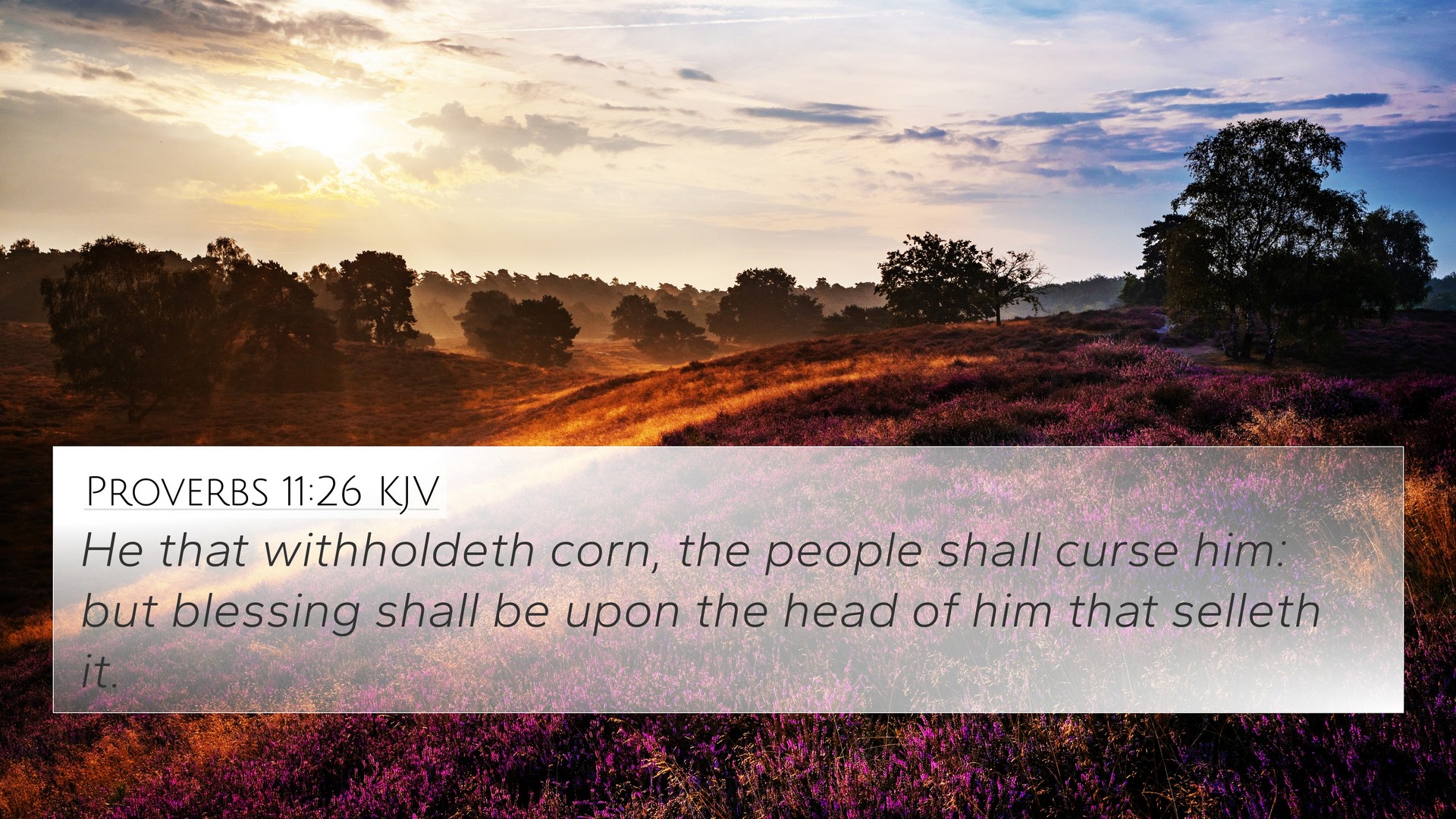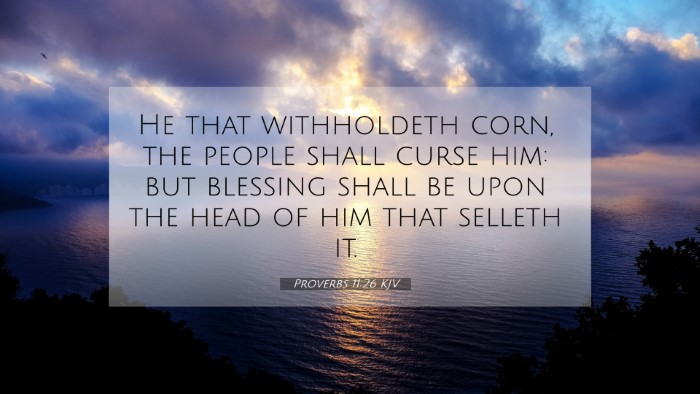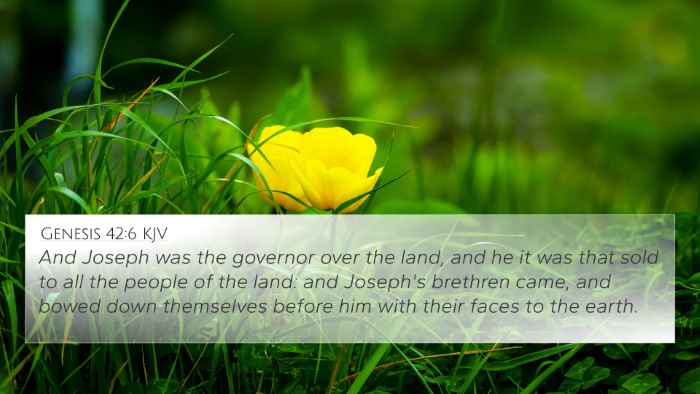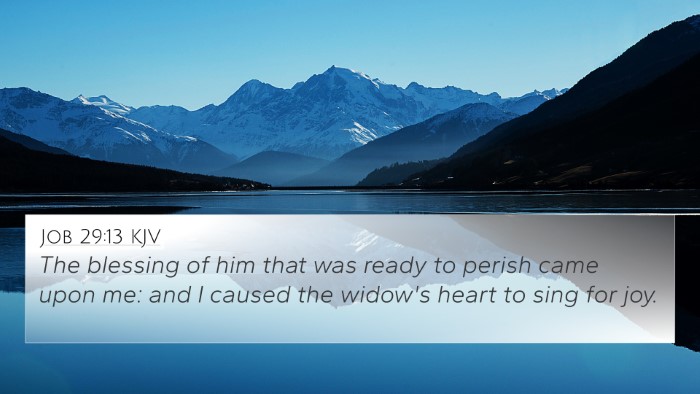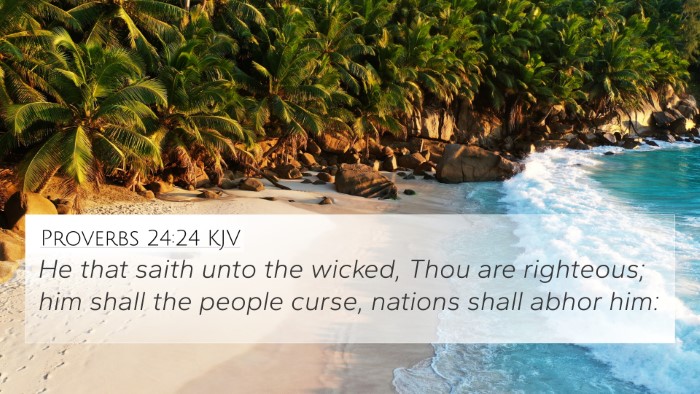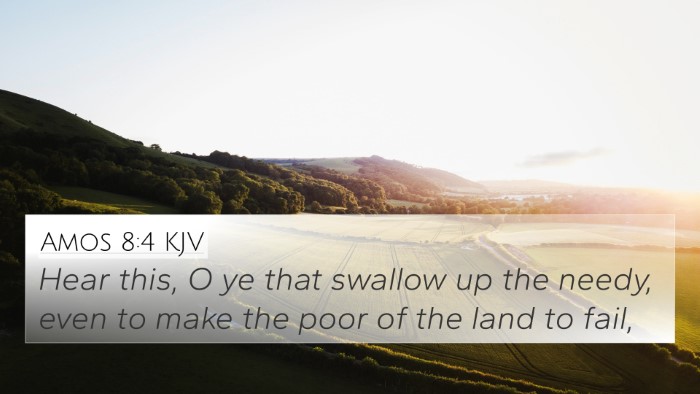Understanding Proverbs 11:26
Proverbs 11:26 states: "The people curse him that withholdeth corn; but blessing shall be upon the head of him that selleth it." This verse presents a thought-provoking reflection on generosity and the social implications of withholding resources.
Summary of Biblical Meanings
This verse, when explored through various commentaries, reveals profound insights into the morality surrounding resources, particularly food. The ancient wisdom literature often teaches not just economic principles but also highlights the ethical choices tied to communal wellbeing.
Key Insights from Public Domain Commentaries
- Matthew Henry: Henry emphasizes the moral obligation to share resources, particularly in times of scarcity. Withholding necessities like grain is seen as a selfish act that leads to communal curse. Conversely, those who sell their grain fairly and generously are rewarded with blessings, particularly in the eyes of the community.
- Albert Barnes: Barnes points out that the act of selling corn implies conducting oneself with wisdom and kindness. He notes that those who hoard their resources, especially essential ones, attract disdain and negative sentiment, while those who nurture their community through sharing foster goodwill and attract blessings.
- Adam Clarke: Clarke elaborates on the social dynamics at play, arguing that hoarding food during a time of need can lead to societal unrest. He notes that those who engage in fair transactions by selling grain are viewed positively, which is likely to translate into favorable outcomes in their lives and relationships.
Cross-Referencing Biblical Texts
Proverbs 11:26 invites readers to seek connections and themes present throughout the Bible. Here are several related scripture references that enhance the understanding of this verse:
- Proverbs 19:17: "He who is kind to the poor lends to the Lord, and he will reward him for what he has done."
- James 2:15-16: "If a brother or sister is poorly clothed and lacking in daily food, and one of you says to them, 'Go in peace, be warmed and filled,' without giving them the things needed for the body, what good is that?"
- Matthew 25:35: "For I was hungry and you gave me food, I was thirsty and you gave me drink, I was a stranger and you welcomed me."
- Luke 12:15: "And he said to them, 'Take care, and be on your guard against all covetousness, for one's life does not consist in the abundance of his possessions.'"
- Deuteronomy 15:7-8: "If among you, one of your brothers should become poor, in any of your towns within your land that the Lord your God is giving you, you shall not harden your heart or shut your hand against your poor brother, but you shall open your hand to him and lend him sufficient for his need."
- Isaiah 58:6-7: "Is not this the kind of fasting I have chosen: to loose the chains of injustice and untie the cords of the yoke, to set the oppressed free and break every yoke? Is it not to share your food with the hungry and to provide the poor wanderer with shelter?"
- 2 Corinthians 9:6: "The point is this: whoever sows sparingly will also reap sparingly, and whoever sows bountifully will also reap bountifully."
Connections Between Bible Verses
Linking Bible scriptures enhances the understanding of common themes such as generosity, social responsibility, and the consequences of one's actions. This interconnectedness underscores the necessity of ethical stewardship.
Thematic Bible Verse Connections
The main themes addressed in Proverbs 11:26—ethics in resource management and community welfare—are prevalent throughout the Scriptures. This provides a greater understanding of not just the individual responsibility of sharing but also the broader implications of these actions on society.
Conclusion
In summary, Proverbs 11:26 serves as a critical reminder of the ethical importance of stewardship over resources and the profound impact of our choices on the community. The surrounding commentary and interconnected biblical texts provide a rich tapestry of wisdom on the necessity for generosity and the blessings that follow righteous behavior. For those seeking deeper understanding, utilizing a Bible concordance or Bible cross-reference guide can be invaluable tools in exploring these connections further.
Additional Resources for Cross-Referencing
When studying Proverbs 11:26 and its related themes, consider leveraging the following tools:
- Bible concordance: A helpful tool to find words and their occurrences across the Bible.
- Bible cross-reference guide: Facilitates finding related verses, enhancing comparative studies.
- Cross-reference Bible study methods: Involves systematic examination of scripture through established links.
- Bible chain references: Links verses that support or relate to one another within thematic studies.
- Comprehensive Bible cross-reference materials: Books and online resources that provide extensive listings of related verses.
